Keywords: Personal Development
There are more than 200 results, only the first 200 are displayed here.
-
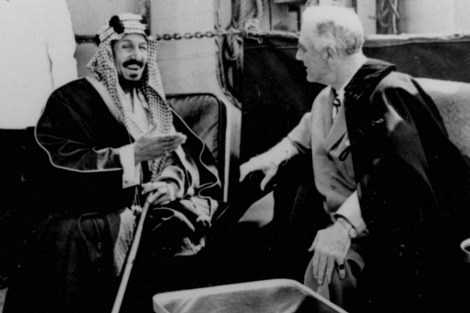
ECONOMICS
- David James
- 15 December 2015
3 Comments
In the early 1990s, America, Europe and Japan accounted for about 90 per cent of world GDP. Now, they account for less than half. The BRICs and other developing nations have grown steadily (in China's case spectacularly) while Europe has stagnated and America has sputtered at best. Recent developments in the geopolitics of fossil fuels and in finance confirm the perception that the rise of China and the developing world spells the end of US global hegemony. Against this backdrop, the narrative of the West has grown increasingly incoherent.
READ MORE 
-

RELIGION
- Frank Brennan
- 03 December 2015
The consideration of medico-legal problems in the public square of a pluralistic democratic society keeping pace with profound technological change is often marked by simplistic assertions, precluding considerations of comprehensive world views, whether religious or philosophical. It is now commonplace for doctors to be told to leave their consciences at the door, as their patients are consumers and they are suppliers and of course the market decides. Debates about law and policy are often resolved with simplistic assertions about individual rights and autonomy, with little consideration for the public interest, the common good, and the doctor-patient relationship. Even conscience is said to be a matter for contracting out. This evening I ask whether there are more compelling ways to resolve medico-legal dilemmas, while conceding a limited role for law in determining the range of acceptable answers.
READ MORE
-

RELIGION
- Frank Brennan
- 27 November 2015
2 Comments
'The crisis of child sexual abuse in our societies has required that our institutional procedures be more transparent and that we learn from the ways of the world in exercising power openly and justly. This means we have to restructure some of our church arrangements so that power is exercised accountably and transparently. All of us who have positions of influence and power in institutional churches need to be attentive to the voices of those who have suffered within our institutions.' 'Discerning the place for the prophetic voice and pragmatic cooperation of the churches in the great moral questions of the age', address to the Association of Practical Theology in Oceania conference, 26 November 2015.
READ MORE
-
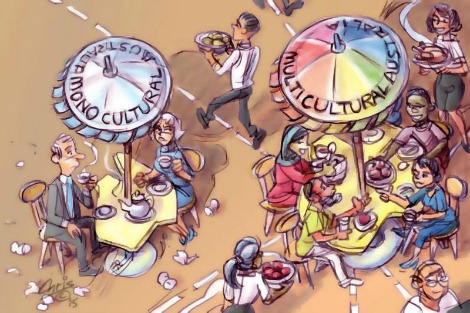
AUSTRALIA
- Gabriela D'Souza
- 09 November 2015
10 Comments
George Megalogenis describes a protest rally in 1849 organised by residents of Sydney against arrivals of more convict boats. Workers who 'wanted to maintain their high-wage society' made 'the first of countless calls that would be made against migrants who threatened to undercut their standard of living'. It is a familiar refrain today. In a world where three-fifths of a person's income is determined by their place of birth, it defies logic that we place restrictions on people's movement to preserve our standard living.
READ MORE 
-

AUSTRALIA
- Andrew Hamilton
- 23 October 2015
4 Comments
A particular issue in Australia is the age of criminal responsibility, which varies in different states between ten and 12. Research into brain development suggests that people cannot fully take responsibility for their actions until they are 15 years old. Responsible policy must respect the human development of the child and ensure that the response to their wrongdoing takes into account their age and does not place them in processes they can neither understand nor properly participate in.
READ MORE 
-

AUSTRALIA
- Frank Brennan
- 23 October 2015
4 Comments
Francis knows there are all sorts of issues inside and outside the Church where for too long people with power have tried to keep the lid on, in the hope that the problems and complexities will go away, often by parodying those who see the problems or complexities as small 'l' liberals or cafeteria Catholics. He delights in being joyful and troubled while contemplating big problems, calling people of good will to the table of deliberation reminding them of the kernel of the Christian gospels. He has the faith and hope needed to lift the lid without fear and without knowing the answers prior to the dialogue occurring.
READ MORE
-
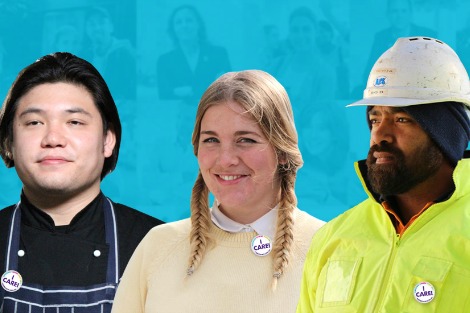
AUSTRALIA
- Moira Byrne
- 14 October 2015
3 Comments
Mental health disorders among caregivers occur at a rate of up to two times that of the general population, and relationship breakdown for parents of children with special needs is reported to be around 80 per cent. Since becoming a parent of someone with a disability and changing careers, I've been fortunate to have employers who have permitted part-time work, which has been a crucial aspect of my wellbeing. This has not always been the case, nor is it the case for all caregivers all the time.
READ MORE 
-

- Frank Brennan
- 26 August 2015
7 Comments
When addressing Italian doctors last November, Pope Francis quoted St. Camillus de Lellis who suggested that the most effective method in caring for the sick was simply to 'Put more heart into those hands.' Let's do something to change the market settings and political settings here in Australia to modify the behaviour of all Australians in the future, and let's attend to our own Franciscan interior ecological conversion with our care for the vulnerable.
READ MORE
-

- Frank Brennan
- 06 August 2015
3 Comments
Pope Francis is not the first pope to address a social encyclical to everyone. But in comparison with his predecessors, Francis has been more inclusive in the process of writing the encyclical and in the final content of the document. He quotes from 17 different conferences of Catholic bishops. He is at pains to indicate that he is collaborative and that he takes the principle of subsidiarity very seriously. Being the final redactor of the text, he has felt free to interpolate some very folksy advice from time to time. He has also taken the liberty of inserting some very blunt, evocative images of environmental and economic devastation.
READ MORE
-

- Frank Brennan
- 03 August 2015
1 Comment
I am one of those Jesuits who sometimes has been perceived as not being sufficiently loyal to the church hierarchy. From time to time, people of good will have urged me to consider Ignatius' rules for thinking with the Church which are appended to his Spiritual Exercises. The stereotypical view of those rules is often summed up by quoting the first sentence of the 13th rule: 'To keep ourselves right in all things, we ought to hold fast to this principle: What I see as white, I would believe to be black if the hierarchical Church would thus determine it.' But life was not ever that simple, even in the time of Ignatius. Feast of St Ignatius homily by Frank Brennan
READ MORE
-
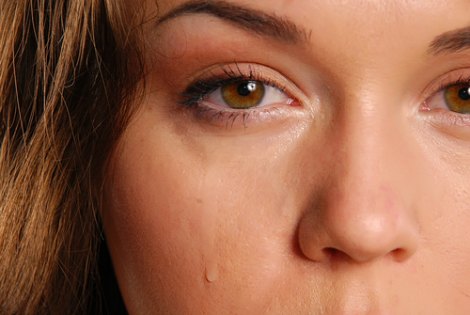
ARTS AND CULTURE
- Cassandra Golds
- 15 July 2015
5 Comments
'You are stronger than you know.' To scroll through Facebook is to meet such exhortations constantly. Often circular, and strangely unhelpful. Some, at a time of rising concern about violence against women, are downright alarming. 'A strong woman is one who is able to smile this morning like she wasn’t crying last night.'
READ MORE 
-
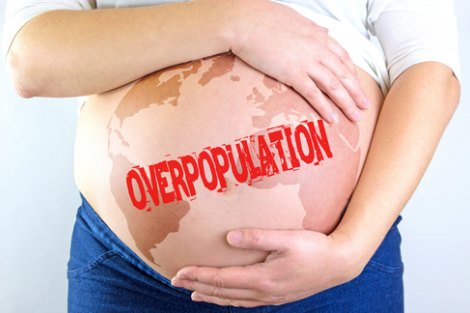
AUSTRALIA
- Andrew Hamilton
- 25 June 2015
23 Comments
In his recent encyclical, Pope Francis demands that, in addressing the needs of the environment, wealthy nations must reform an economic system that perpetuates poverty in the underdeveloped world. In seeking a conversion of heart on the part of those who are wealthy, he sees imposing artificial population control on the world's poor as a thoroughly unfair and unconverted attitude. The real problem is the greed of the rich, not the inability of the poor to control their fertility.
READ MORE 